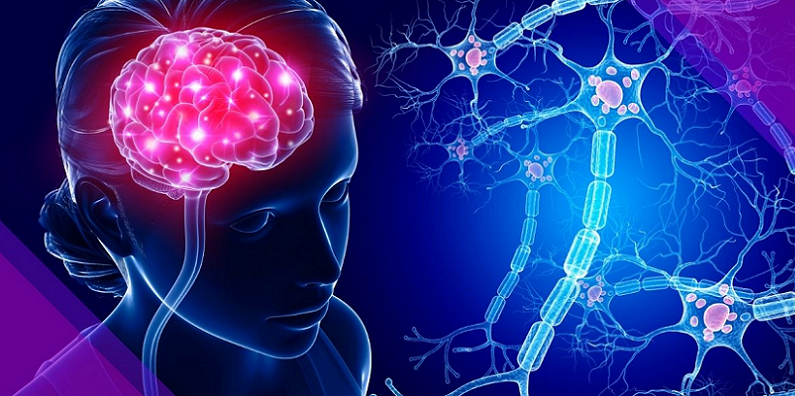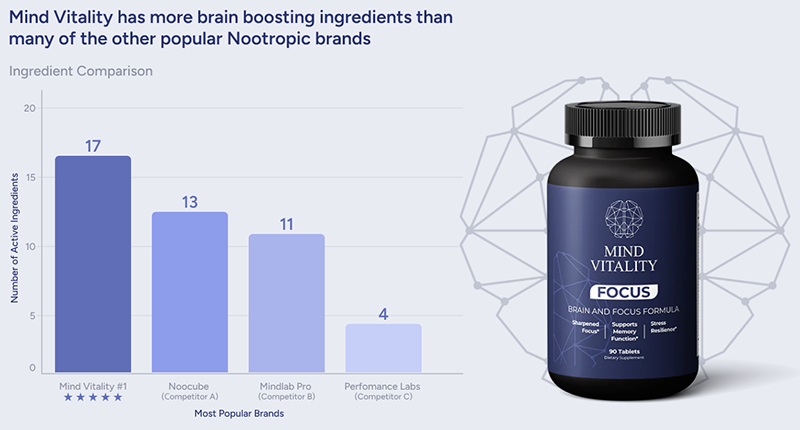
When we think of cognitive decline, often our first thoughts turn to aging, genetic predispositions, or neurodegenerative diseases. However, deep within the intricate systems of our bodies lies another potent player that can significantly impact our cognitive health: hormones. These powerful messengers, responsible for regulating a myriad of bodily functions, also play a pivotal role in the health and vitality of our brains. Yet, their connection to cognitive decline remains a topic not frequently discussed.
Contents
Overview of Hormonal Systems
Hormones are often thought of as the body’s “chemical messengers.” They traverse the bloodstream, impacting a wide array of physiological processes, from our growth and metabolism to our mood and reproductive cycles. But before exploring the nuances of how hormonal imbalances can affect cognitive functions, it’s essential to grasp the basics of hormonal systems.
Definition and Role of Hormones
Hormones are specialized molecules produced by glands in the endocrine system. Their primary function is to transfer information and instructions from one set of cells to another. Think of them as couriers, transporting crucial information that enables our body to function harmoniously. Every hormone has a specific role, whether it’s regulating metabolism, aiding in cell growth, controlling our body’s internal clock, or influencing cognitive functions.
The Endocrine System and its Importance
The endocrine system, a network of glands and organs, is the epicenter of hormone production and regulation. Glands like the pituitary, thyroid, adrenal, and pancreas are part of this intricate system. Each gland produces distinct hormones which, when released, influence target cells or organs, evoking specific physiological responses.
The importance of the endocrine system cannot be overstated. A finely-tuned balance of hormones ensures optimal bodily functions. Even minor disruptions can lead to significant health issues, underscoring the delicate equilibrium our bodies strive to maintain.
Key Hormones Involved in Brain Function
Several hormones have a direct or indirect influence on our brain’s health and functionality.
Estrogen
Predominantly known for its role in the female reproductive system, estrogen also affects brain functions like mood, attention, and memory. Its fluctuations can be particularly significant during various life stages, such as menopause.
Thyroid Hormones (T3 & T4)
These hormones, produced by the thyroid gland, are paramount for the brain’s development and function. Imbalances can lead to mood disorders and cognitive disturbances [1].
Cortisol
Often labeled the “stress hormone,” cortisol is released by the adrenal glands in response to stress. While acute stress responses are protective, chronic elevations can be detrimental to cognitive health.
Insulin
While primarily known for regulating blood sugar levels, insulin has profound implications for brain health. Dysregulation can lead to insulin resistance in the brain, a factor associated with neurodegenerative diseases.
Hormonal Imbalances and Their Impact on the Brain
The ebb and flow of hormones within our bodies is a delicate dance. When harmoniously balanced, our cognitive functions flourish, enabling us to think clearly, learn effectively, and retain memories. However, when imbalances occur, the ramifications on our brain can be substantial.
Estrogen and the Brain
Estrogen, often primarily associated with reproductive health, plays several pivotal roles in the brain. From neurotransmitter regulation to neuronal growth, its impact is widespread.
Memory and Learning
Research has unveiled that estrogen can enhance the connectivity between neurons in the hippocampus, the brain’s central hub for learning and memory. When estrogen levels plummet, as during certain phases of the menstrual cycle or post-menopause, some women may experience foggy thinking or difficulty recalling information [2].
Protection Against Neurodegenerative Diseases
Estrogen has demonstrated neuroprotective qualities. It aids in reducing inflammation in the brain and assists in preventing the buildup of plaque, a hallmark of Alzheimer’s disease. However, with declining estrogen levels in post-menopausal women, they may experience an increased risk of neurodegenerative diseases.
Thyroid Hormones and Cognitive Function
The thyroid, a butterfly-shaped gland situated in the neck, plays a foundational role in our overall health, including brain function.
Hypothyroidism and Brain Fog
Hypothyroidism, a condition where the thyroid gland is underactive and produces insufficient hormones, can lead to symptoms like fatigue, depression, and the frequently mentioned “brain fog.” This fog manifests as forgetfulness, confusion, and difficulty concentrating, emphasizing the thyroid’s role in cognitive health.
Hyperthyroidism and Anxiety
Conversely, hyperthyroidism, where the thyroid is overactive, can lead to symptoms resembling anxiety, including restlessness, irritability, and sleep disturbances. This state of heightened alertness and stress can impair cognitive function over time.
Cortisol and Stress Response
Cortisol’s reputation as the “stress hormone” is well-founded, given its critical role in our body’s response to stressful situations.
Chronic Stress and Elevated Cortisol Levels
In acute situations, a cortisol surge can heighten our senses and response times – a remnant of our evolutionary “fight or flight” reflex. However, in today’s world, many find themselves in a state of chronic stress, leading to persistently elevated cortisol levels. This prolonged elevation can damage brain structures, particularly the hippocampus, leading to memory issues and an increased risk of depression.
Impact on Memory and Concentration
Chronically high cortisol levels can impede neuron regeneration and disrupt synaptic plasticity, vital for learning and memory. Additionally, elevated cortisol can lead to sleep disturbances, a critical factor for memory consolidation [3].
As we’ve explored, hormonal imbalances can significantly affect our cognitive health. These imbalances, sometimes subtle, can ripple through our lives, influencing our ability to think, learn, and remember. Recognizing and addressing them can be a critical step in safeguarding our cognitive well-being.

The Hormones and Menopause Connection
Menopause, a natural biological process, marks the end of a woman’s menstrual cycles and fertility. But beyond hot flashes and night sweats, menopause brings with it a suite of changes, many underpinned by hormonal shifts. The profound drop in estrogen levels during this period doesn’t just influence physical symptoms but also casts a shadow on cognitive health. Let’s delve deeper into how menopause, through its hormonal roller coaster, interacts with our brain’s well-being.
Menopause and Declining Estrogen Levels
As women approach menopause, typically in their late 40s or early 50s, their ovaries produce less estrogen. This decline isn’t linear—estrogen levels can fluctuate dramatically, leading to the commonly discussed symptoms of menopause. Yet, less frequently highlighted are the cognitive implications of this decline.
Estrogen, beyond its reproductive role, serves as a neuroprotectant and modulator of neurotransmitter systems in the brain. Its decline can therefore influence neural circuits, affecting mood, memory, and cognitive agility.
Symptoms of Cognitive Decline during Menopause
For many women navigating the menopausal transition, cognitive symptoms can be both perplexing and concerning. These include:
- Difficulty Concentrating: Tasks that once felt routine might now demand heightened attention, making multitasking more challenging.
- Memory Lapses: Occasional forgetfulness, like misplacing keys or forgetting names, can become more frequent.
- Reduced Mental Sharpness: Some describe this as a ‘brain fog’—a feeling of mental cloudiness that impedes clear thinking.
It’s crucial to note, however, that these symptoms can be transient for many women, improving as they move past the menopausal transition.
Research on Hormone Replacement Therapy (HRT) and Cognitive Health
Given the evident connection between declining estrogen and cognitive symptoms, researchers have extensively studied Hormone Replacement Therapy (HRT) as a potential remedy [4].
HRT involves taking synthetic hormones to counteract the decline of natural hormones. While it can alleviate some menopausal symptoms, its effects on cognition are nuanced:
- Some studies suggest that early initiation of HRT, soon after the onset of menopause, might confer cognitive benefits or reduce the risk of Alzheimer’s disease.
- Conversely, starting HRT late, especially after 65, might increase the risk of cognitive decline and dementia.
It’s essential for women to consult with healthcare professionals when considering HRT, weighing its potential cognitive benefits against its risks, which can include heart disease, blood clots, and certain types of cancer.

Other Conditions Leading to Hormonal Imbalances
While menopause stands out as a significant hormonal transition in women’s lives, several other conditions can also induce hormonal imbalances, impacting both men and women. These imbalances, often overlooked, can subtly (or sometimes, profoundly) influence cognitive health.
Polycystic Ovary Syndrome (PCOS) and Cognition
Polycystic Ovary Syndrome, commonly known as PCOS, is a hormonal disorder prevalent among women of reproductive age. It’s characterized by elevated levels of androgens (male hormones) in women.
Beyond its impact on fertility and metabolic health, PCOS can influence brain function.
Mood Disorders
Women with PCOS often exhibit higher rates of anxiety, depression, and mood swings. This predisposition is not just due to the physical symptoms of PCOS but can be directly linked to hormonal fluctuations.
Cognitive Impact
Preliminary research suggests that women with PCOS may experience mild cognitive disturbances, although the evidence remains inconclusive and requires further investigation [5].
Adrenal Fatigue and Chronic Stress
The adrenal glands, perched atop our kidneys, play a vital role in producing hormones, notably cortisol, in response to stress. However, prolonged stress can strain these glands, leading to a condition colloquially termed “adrenal fatigue.”
Cognitive Symptoms
Chronic stress and the subsequent overproduction of cortisol can lead to cognitive symptoms like memory lapses, difficulty concentrating, and brain fog.
Mood Disturbances
Adrenal imbalance can also lead to mood disorders, heightened anxiety, and increased susceptibility to depression.
Pituitary Disorders and their Cognitive Effects
The pituitary gland, often termed the “master gland,” governs the release of hormones from various glands within the endocrine system. Disorders of the pituitary can therefore cascade into multiple hormonal imbalances.
Pituitary Adenomas
These are benign tumors on the pituitary gland. While non-cancerous, their presence can disrupt the normal production of hormones. This disruption can lead to symptoms ranging from vision problems to cognitive disturbances.
Hormonal Impact
Any imbalance stemming from the pituitary gland can affect other endocrine glands, leading to conditions like hypothyroidism or adrenal insufficiency, both of which have cognitive implications.
The Link Between Hormonal Imbalances and Neurodegenerative Diseases
Neurodegenerative diseases, characterized by the progressive degeneration of nerve cells, remain among the most concerning aspects of cognitive decline. From Alzheimer’s to Parkinson’s, these conditions profoundly affect the individual and their loved ones. Recent research has illuminated potential connections between hormonal imbalances and the onset or progression of these diseases.
Alzheimer’s Disease and Hormones
Alzheimer’s disease, the most common form of dementia, is marked by symptoms of memory loss, confusion, and changes in behavior and personality. The relationship between Alzheimer’s and hormones is intricate, with several hormones playing pivotal roles:
Estrogen’s Neuroprotective Role
As previously discussed, estrogen has neuroprotective properties. It assists in reducing inflammation in the brain and helps prevent the buildup of beta-amyloid plaques, a hallmark of Alzheimer’s. Lower levels of estrogen, especially post-menopause, might increase susceptibility to Alzheimer’s, although research in this arena is ongoing.
Insulin and Alzheimer’s
Insulin dysregulation can lead to brain insulin resistance, a condition increasingly recognized as a factor in Alzheimer’s disease. Some scientists even refer to Alzheimer’s as “Type 3 Diabetes” due to this insulin connection.
Parkinson’s Disease and Hormonal Influence
Parkinson’s disease is characterized by motor symptoms like tremors, rigidity, and bradykinesia. However, there’s growing awareness of the non-motor symptoms, including cognitive disturbances.
The Role of Cortisol
Increased cortisol levels have been observed in individuals with Parkinson’s disease. While the relationship is complex, chronic elevation of cortisol might contribute to neuronal damage, exacerbating the disease’s progression.
Estrogen and Parkinson’s
Some studies suggest that estrogen might have a protective effect against Parkinson’s, especially in women. The hormone might delay the onset of the disease or mitigate its severity, although the exact mechanisms remain under investigation.
Other Neurodegenerative Conditions
While Alzheimer’s and Parkinson’s are among the most studied, hormonal imbalances might influence other neurodegenerative conditions:
Huntington’s Disease
Huntington’s, a genetic disorder, has been linked with disruptions in various hormonal pathways, including the hypothalamic-pituitary-adrenal axis, which could contribute to its pathogenesis.
Amyotrophic Lateral Sclerosis (ALS)
Research is nascent, but there are indications that hormonal imbalances, especially in testosterone levels, might play a role in ALS’s onset or progression.
References
[1] Hormone Balancing
[2] Hormones and dementia
[3] The Effect of Hormone Replacement Therapy on Cognitive Function
[4] Hormonal Influences on Cognitive Function
[5] Effect of Hormone Levels and Aging on Cognitive Function

